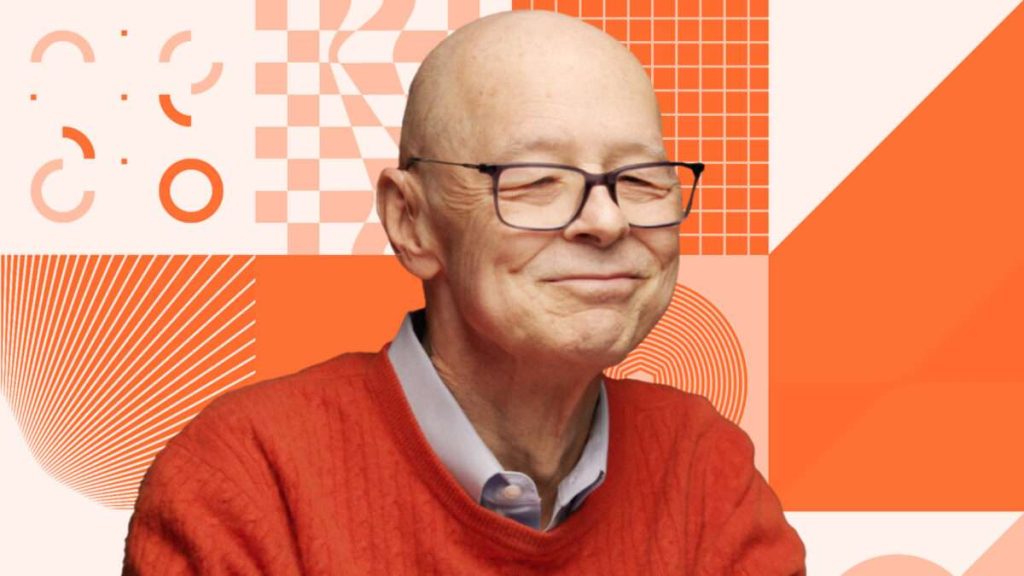David Boaz. (Cato Institute)
David Boaz passed away today. Liberty has lost one of its greatest and most principled advocates. As the Cato Institute’s longtime longtime vice president for public policy and executive vice president for over forty years, he—more than any other single person—built Cato into the world’s leading libertarian think tank. His 2015 book The Libertarian Mind is one of the best and most accessible introductions to libertarian ideas. In an edited volume, The Libertarian Reader, David compiled a wide range of classic libertarian writings by leading thinkers.
Central to David’s thought was the idea that libertarianism requires both a broad conception of the range of liberties that must be protected, and a broad view of the range of people entitled to that full protection. Thus, he advocated radically cutting back on government policies that violated economic liberty, such as taxation and welfare state spending. But he was equally concerned about those that threatened liberty of other kinds, such as immigration restrictions and the War on Drugs. And he repeatedly emphasized that the full range of liberties must be available to everyone—whether they be black or white, gay or straight, men or women, immigrants or natives.
Thus, in a 2010 article, he cautioned libertarians against nostalgia for an imagined past, where liberty was supposedly greater. While some types of government intervention were less prevalent in the 18th and 19th centuries, it was—he noted—also an era of slavery, segregation, and other forms of oppression that have since been at least in large part overcome.
David also repeatedly reminded libertarians that we must be concerned about dangers to liberty from both right and left. Unlike some, he did not minimize or ignore the threat of right-wing authoritarian ethno-nationalism exemplified by the rise of Trump in the US, an similar movements in Europe. In his contribution to National Review’s 2016 “Against Trump” symposium, David wrote that “From a libertarian point of view…. Trump’s greatest offenses against American tradition and our founding principles are his nativism and his promise of one-man rule.” He was right then, and remains right today.
I knew David for over thirty years, since I was an intern at Cato in 1992, during the summer after my freshman year in college. A small incident from that time illustrates David’s simultaneous commitment to high standards and intellectual outreach.
In those days, Cato was housed in a small building, which included a storage room filled with books published by the Institute. I liked to go there and browse—it was more fun than the work I was assigned to do! Early one morning, David happened by the storage room, and saw me reading a book there.
“Mr. Somin,” he asked, “did your paycheck come on time this week?”
“Yes, sir,” I answered.
“Then, why,” David inquired, “are you late to work?”
Whether they were a vice president or an intern, everyone at Cato had a job they should be focused on. David had little tolerance for slackers.
Duly chastened, I moved to get back to work. But David also made sure to point out that Cato interns were entitled to free copies of Institute publications. If I wanted to read that book (or any other Cato book), he said, I should simply take it home with me—and read it on my own time. He never forgot that developing and spreading ideas was the main focus of a think tank’s mission. And that is how I got copies of David’s excellent edited volumes, Liberating Schools, and The Crisis in Drug Prohibition.
That same commitment to ideas and outreach made David a great promoter of libertarian thought to a wide range of audiences. He had the rare skill of always maintaining civility, while also never pulling his punches.
In later years, I became a Cato adjunct scholar, and—eventually—the Institute’s Simon Chair in Constitutional Studies (in addition to my primary employment as a law professor at George Mason University). Over that time—thanks to David’s support—Cato co-published two of my books, and I did various other projects with the Institute, as well. Thus, I often had the opportunity to work with David and learn from him. I could not help but admire both his unfailingly high standards, and his commitment to principle. Cato and other libertarian institutions should strive to continue his legacy.
In closing, I would like to extend my condolences to David’s family, friends, and colleagues.
The Cato Institute has posted a summary of David’s career, and tributes by many Cato scholars, here.
The post David Boaz, RIP appeared first on Reason.com.





